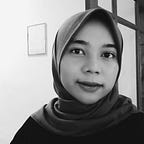Life after forty books
These past eighteen months brought me into discoveries that I never expected before. I no longer work in a conventional office setting, which brings some significant changes in my lifestyle. One of them is rediscovering the joy of reading. When I was still a commuter, the void of the daily journey between home and office was filled by reading books on my e-reader. It resulted in me being able to finish three books in months — the challenge that a friend and I agreed on. But, staying at home has changed my situation. The new nature means a higher degree of allocating my time for reading. This eventually leads to being active on the book enthusiast side on social media. With that being said, existing ideas are challenged and I learn to grow, too.
why forty books
There’s nothing special about this number, except that it sounded bearable at first. In early 2020 I joined my friend to set our own reading goal after enjoying the hype of book enthusiasts on Twitter. Our goal was quite simple: three books per month. When I was a commuter, this idea sounded like a good deal. During the early days of quarantine, a lot of people, including me, were excited to create their own transformation goals. I started befriending bookish people through Twitter and Instagram, and boom, my reading journey of 2020 ended up with forty books. And just because forty sounded reachable, I repeated the same number in 2021. As of June 2021, I have finished the quantitative aspects of my annual reading goals: forty books. Since the pandemic hasn’t shown any significant sign of its end, completing my own challenge was such a relief.
what I consumed
I’m still a reader of both fiction and non-fiction works. These kinds of balance provide me the learning zone that I find hard to seek after finishing graduate school. As I’m still floating in between the idea to pursue post-graduate education again or continue working, reading enables me to access knowledge that is spread around the world from my bedroom.
After reading Japanese literature for the first time in 2013, they still have a special place in my heart. I admire the way Japanese authors elaborate their characters’ feelings, especially when dealing with loneliness and solitude. One of my favorite Japanese books is Kitchen by Banana Yoshimoto. Kitchen is a novella in which a space of a house becomes a memory about passion, love, and death at once. I also reread Sweet Bean Paste, a heartwarming novel about a cake shop that was run by two people who have their own entangled pasts. Sweet Bean Paste, to me, was also a window to understand leprosy survivors in Japan.
As a researcher who must prioritize conciseness above aesthetics, reading beautifully crafted sentences feels like taking a getaway. Earlier this year I was suggested by two friends to read the works of Ocean Vuong, a Vietnamese-American author. With no hesitation, I completed reading On Earth We’re Briefly Gorgeous and Night Sky with Exit Wounds only in a week. Among the exquisite parts of n Earth We’re Briefly Gorgeous, the closing sentences hit me so hard: “Because the sunset, like survival, exists only on the verge of its own disappearing. To be gorgeous, you must first be seen, but to be seen allows you to be hunted.”
In parallel, reading nonfiction –without forgetting the fun– is equally important to me. In a world full of myriad, nonfictions are the periscope to understand the progress of knowledge. During the first half of 2021, I saw myself finding excitement from reading references about human behavior. They made me aware of our limitations as humans that impacted the way we live affluently. Yet, nonfictions give me hope for a better future. One of the most life-changing books is Factfulness, which is written by a Swedish professor of public health named Hans Rosling. Factfulness is both rich in quantitative data and storytelling. These combinations are perfect for me as a person who is keen on mixed-method research. Besides it, I also enjoy reading Humankind, Utopia for Realists, and The Immortal Life of Henrietta Lacks. Those are the three books that combine historical moments and the way they paved our current society’s trajectory through brilliant science writing.
what I plan
With three months left before another new year, I’m looking forward to exploring topics that remain unfamiliar. I’m genuinely interested to get to know more about human-tech relations, politics in Asia, and more stories from the Asian and African communities as well. To stories that are waiting to unfold, here I am.
